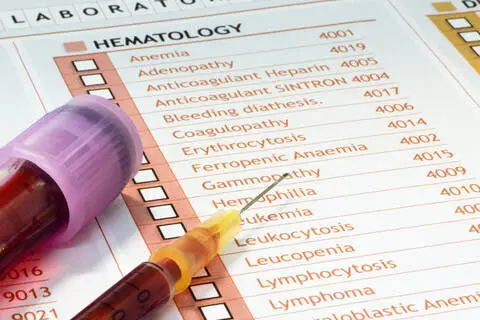Quality Assurance and Management Standards

Quality Assurance and Management standards play a vital role in looking at the larger picture, beyond any single individual lab test. Addressing development, risk management, leadership and management roles, error management, and more, these standards are key to the long-term functioning and reliablity of a laboratory.
CLSI QMS01-Ed5
A Quality Management System Model for Laboratory Services - 5th Edition
This guideline provides a model for medical laboratories to organize the implementation and maintenance of an effective quality management system.�
CLSI QMS02-A6
Quality Management System: Development and Management of Laboratory Documents; Approved Guideline - Sixth Edition
This document provides guidance on the processes needed for document management, including creating, controlling, changing, and retiring a laboratory’s policy, process, procedure, and form documents in both paper and electronic environments.
CLSI QMS05
Qualifying, Selecting, and Evaluating a Referral Laboratory - 3rd Edition
This guideline provides recommended criteria and easily implemented processes to qualify, select, and evaluate a referral laboratory.
CLSI QMS06-A3
Quality Management System: Continual Improvement; Approved Guideline - Third Edition
This guideline considers continual improvement as an ongoing, systematic effort that is an essential component of a quality management system. A continual improvement program may consist of fundamental processes and common supporting elements described in this guideline.
CLSI QMS13-A
Quality Management System: Equipment; Approved Guideline
This guideline provides recommendations for establishing equipment management processes from selection through decommission of all items of equipment used in the provision of laboratory services.
CLSI QMS14-A PKGE
Quality Management System: Leadership and Management Roles and Responsibilities; Approved Guideline
This guideline presents concepts and information intended to assist a laboratory in meeting leadership requirements for its quality management system. Guidance is provided for leaders to effectively design, implement, and maintain the cultural, structural, and functional aspects of their laboratoryÆs organization that are critical to managing and sustaining quality. Includes companion product which provides an executive summary of QMS14-A .
CLSI AUTO10-A
Autoverification of Clinical Laboratory Test Results; Approved Guideline
This guideline specifies recommendations for the design, building, implementation, validation, and compliance of the algorithms used for autoverification of laboratory results. The intended users of this guideline are information system vendors; hospital, reference, independent, and physician office laboratories; data management vendors; instrument manufacturers; and those involved in point-of-care testing. This guideline is not intended to provide test parameter rules or limits for practicing medicine or methods for confirmation of result delivery. This guideline does not address hardware specifications, interface specifications, connectivity, or software configuration. Security measures are beyond the scope of this document and are assumed to be covered by country-specific policies. For additional information, refer to the current edition of CLSI document AUTO11 - IT Security of In Vitro Diagnostic Instruments and Software Systems.
CLSI EP18-A2
Risk Management Techniques to Identify and Control Laboratory Error Sources; Approved Guideline - Second Edition
This guideline describes risk management techniques that will aid in identifying, understanding, and managing sources of failure (potential failure modes) and help to ensure correct results. Although intended primarily for in vitro diagnostics, this document will also serve as a reference for clinical laboratory managers and supervisors who wish to learn about risk management techniques and processes.
CLSI MM19-A
Establishing Molecular Testing in Clinical Laboratory Environments; Approved Guideline
This guideline provides comprehensive guidance for planning and implementation of molecular diagnostic testing, including strategic planning, regulatory requirements, implementation, quality management, and special considerations for the subspecialties of molecular genetics, infectious diseases, oncology, and pharmacogenetics. molecular regulatory requirements, strategic planning, unidirectional workflow.
CLSI QMS11 (R2019)
Nonconforming Event Management, 2nd Edition
Grounded in the principles of quality management, risk management, and patient safety, this guideline provides an outline and content for developing a program to manage a laboratory’s nonconforming events.





